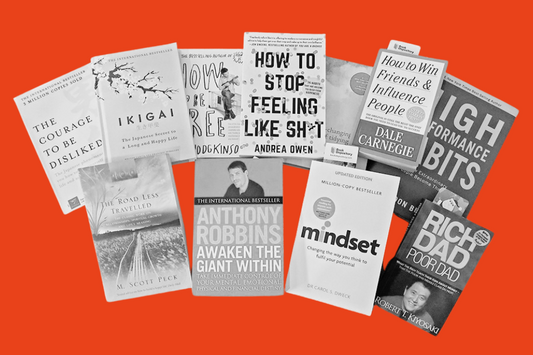‘Everything looks easier when there is a friend by your side.’
A 2008 study by the University of Virginia showed that when given the task of climbing a hill, people who are alone see the hill as steeper rather than people who are with their friends. This (rather cute, if I may say) study highlights the importance of friendship and connection with others. The truth is that when we are faced with a task alone, it can seem more difficult than it actually is. In one of our previous blogs, We all need someone to lean on, the effect of social support on loneliness was brought up and it made me think more on how people actually connect with each other.
I’ve decided to watch more feel-good shows of late, and so, I naturally tuned into the new season of ‘Ted Lasso’. Positive lessons aside, I was trying to understand why I thought the show was heartwarming to begin with. I narrowed it down to the connection and vulnerability that develops with each character through the show. After all, how we connect with people is a personal journey for us to figure out.
While we sit with this thought, I wanted to explore some already existing thoughts out there. In the show ‘Welcome to Wrexham’, they allude to the fact that men connect through sports and activities and women connect more through experience. It is a common belief that women are more emotional while men are more logical. Stereotypes flood younger minds while parents use classic (but often misogyny-laden) one liners like ‘boys don't cry’ or ‘don’t be such a girl’. In my opinion (if we are indeed using the word girl as an insult), we may need to think about restructuring some thought (but let’s leave that lesson for another day) over here. But I digress.
So is it gender? Is it culture? Is it family? Is it socialisation? What is it that influences and teaches us how to connect?
In Ted Lasso, we can see that culture (*insert the quintessential UK stereotype*), gender (CIS males), as well as family dynamics (parental expectations, lack of bonding, pressure, etc. for the various characters) are seen to influence how they connect with each other in the team.
Ted's titular character brings in the element of the ‘good’ and heavily relies on the stereotype of a good father/partner/friend/worker/connecter - a man who focuses on his son, a husband who is understanding of his partner, an optimistic person who is extremely grateful and always looking at the bright side of things, but most importantly, a good friend who shows up and keeps pushing to form connections with people. If the tagline of the show holds true, this one character is going to single handedly solve all the connection issues with the team and bring them together as one tight unit a.k.a ‘a family’.
Which brings us to another question: how do we connect as individuals in a family-like system? Is it emotional? Is it experience-based? Or is it proximity-based? Let’s think about it.
In a society where stereotypical roles are prominent, it can be hard to move away from them. We often hear about how gender stereotypes heavily influence our interactions and how we try to form bonds with family & friends. Men have been pressured to ‘have it all together all the time’ and while that might mean that they are proverbially strong, it also seems like it takes away from them being human, instead turning them into some alternate version of the Robocop.
Let me ask you this: Are we not macho if we feel and create emotional bonds with people who we deem close? I would think so; because if external influences require us to be a certain way there is no space for us to connect with people beyond a stereotype.
And let’s face it… that sounds pretty lonely.
Kindness does play a role much like it does in Ted Lasso; repeatedly asserted by the narrative where his resilient kindness (sometimes overly kind) helps him develop connections with others. However, what I think could be a misstep is this one crucial fact - him not connecting with himself as much. He seems to be someone who is kind and understanding and easily able to form connections with everyone around him, but yet, he still seems to struggle within - with his periodic panic attacks. In fact, even when he is sitting with his therapist, there is always some amount of resistance that comes about.When you think about it, there’s a deep sense of loneliness within him that comes up in the show as well.
I found myself conflicted that a man so kind and nice and genuinely good to everyone was suffering oblivious to everyone else around him - friends and family alike. That brings up the idea that the connection we have with ourselves helps bring out our authentic vulnerable selves to the interaction when we connect with others. In Ted's case, we can see him feeling invisible, stuck and alone with his feelings - feelings he has helped everyone with, but not allowed anyone else to help him with. As individuals, when we do not share our deeper selves with our inner circles, we end up isolating ourselves.
Loneliness was a huge outcome of the pandemic - it was a huge turning point for people to reach out and talk to psychologists as well as to each other. Even though we were physically isolated - it drove a lot of people to now have the common ground to connect with each other - loneliness and isolation were shared feelings that people connected on.
I think when we think of forming a connection with others, introspect on the influence of factors on you. Connection is a personal experience, and you need to find what draws you to people while considering factors that also restrict your ability to connect.
Emotion will be an important influence in how you connect - so go out there and feel the connection!





